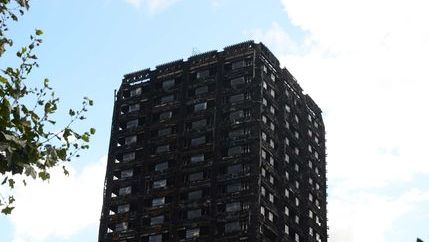
The dates for the remainder of the Act will be at the discretion of the next UK Government after the General Election. Many of the reforms are complex and will require new regulations or secondary legislation to be created which set out the finer details. A recent estimate, from the Conservatives when they were in power, suggested implementation dates between 2025 – 2026 and that the provisions would be enacted in stages.
The following provisions come into force on 24 July 2024, two months after the Act was passed:
- Section 113 – Regulation of remedies for rent charge arrears
- Section 117 – Recovery of legal costs etc through service charge
- Section 118 – Repeal of Section 125 of the Building Safety Act 2022 – meeting remediation costs of insolvent landlord
- Section 119 – Higher-risk and relevant buildings: notifications in connection with insolvency
Banning the creation of new leasehold houses
Section 1 of the Act prohibits the creation of a new long residential lease of a house, except under certain circumstances known as a ‘permitted lease’. A long lease is defined as exceeding 21 years. This applies to houses only, not flats or maisonettes, and is for residential properties, not commercial.
Permitted leases are used where they cover a long residential lease of a house and fall under one or more of the categories set out in Schedule 1 of the Act. These are separated into two further categories; those that require approval from the appropriate tribunal, and those who are eligible for self-certification.
For permitted lease properties, a new requirement is to produce a transaction warning notice for a prospective buyer. This will inform the buyer of the lease and detail the category under which it qualifies as a permitted lease. The grantor of the lease must present the relevant warning to the proposed tenant at least seven days before the date the lease is entered into.
If a long residential lease of a house is granted and in breach of the above section, the leaseholder has the right to acquire the freehold estate and any superior leasehold estate. Local trading standards authorities will be responsible for investigating and enforcing breaches of the ban and imposing a financial penalty if a person is found to have breached the restriction. A fine may be between £500 and £30,000.
Making it cheaper for some leaseholders to extend their lease or buy their freehold
The Act provides that a tenant is not responsible for the costs incurred by the other party concerning the enfranchisement or a lease extension claim, except where the tenant’s claim ceases for a reason other than a permitted reason. In these cases, the tenant may be liable to pay a prescribed amount regarding non-ligation costs. Prescribed costs will be determined by future regulations set by the Secretary of State in England and the Welsh Ministers in Wales.
The permitted reasons are:
- landlord certified as a community housing provider
- compulsory acquisition
- landlord’s redevelopment right
- landlord’s residential rights
- land required for public purposes
- property transferred for public benefit
- estate management schemes
Furthermore, landlords cannot recover costs incurred relating to a claim via service charges.
Increasing standard lease extension terms to 990 years
The Act amends the rights for tenants to request an extension or new lease term of 990 years. Previously the maximum term to extend a lease was 50 years and for a new lease was 90 years.
Whilst the legislation intends to make leasehold extensions cheaper, work is still needed to make this a reality. The cost of lease extensions and freehold purchases is dictated by the capitalisation and deferment rates, which must be set at market value and will likely need separate consultations and secondary legislation.
There is some concern that if these rates are set lower than what is currently agreed between valuers the cost of extensions could go up for those with leases over 80 years, but until that happens nothing is definite.
Ground rent cap missed the boat
Despite campaigning from Propertymark and many other stakeholders, the Act failed to capture a ground rent cap for existing leaseholders, even though it was extensively consulted upon.
There were claims the popular proposal of setting ground rents to a peppercorn was met with fierce resistance from HM Treasury in early 2024, following a lobbying campaign from pensions funds which had invested billions in buying up freeholds for blocks of flats.
However, existing leaseholders can reduce their ground rent to a peppercorn (£0) by extending their lease or exercising the new legal right to buy out the ground rent.
In their General Election manifesto the Conservative Party has committed to a £250 cap if they are elected, but there is no similar pledge from the Labour Party so far.
Stronger rights for consumers, eventually
Once it is fully in effect the Act will give leaseholders greater transparency over service charges and who manages their building, as well as other benefits:
- Freeholders or managing agents must issue bills in a standardised format to make them easier to scrutinise and challenge
- It will be easier and cheaper to take over the management of buildings to allow leaseholders to appoint the managing agent of their choice
- Leaseholders will no longer have to pay their freeholder’s costs when making a claim
- Scrapping the presumption that leaseholders pay their freeholders’ legal costs when challenging poor practice
- Replacing opaque and excessive building insurance commissions for freeholders and managing agents, with transparent and fair handling fees
Propertymark continues work for members
We will continue to engage with politicians and UK Government officials as the next stages of the implementation are developed to ensure that new regulations and secondary legislation are fair, practical, and fit for purpose.
It is recommended agents seek legal advice if they are unsure of how to proceed with any of the enacted sections, as the initial Bill outlined many facets, especially around the deferment rate, which impacts the cost of extending a lease.
We will also produce a fact sheet and FAQs on what is enacted with additions as more sections are added. If any agents have further questions, email our Policy Team at [email protected].





